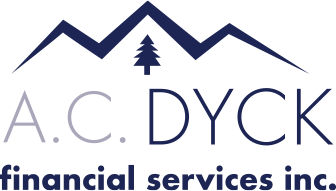Tax Credits and Tax Deductions
In my experience as a Certified Financial Planner, most of my conversations have been with clients who were wealthier than most. These clients usually worked with an accountant as well as me so that they could find every legal advantage within the Canadian Federal and Provincial tax regimes. From time to time, I would run across a question that would stump me because a challenge would come into a client’s life for a variety of reasons. This past week, I got a question from a client that resulted in the need to clarify the difference between a tax credit and a tax deduction. Simply put, a tax credit reduces the amount of taxes a person must pay whereas, a tax deduction reduces the amount of taxable income on which you must pay tax.
We are presently within the annual Canadian ritual called the “RRSP Season”. Technically, RRSP season is always on, but due to our Canadian way of life, we usually use the first 60 days of each new year to either top up our Registered Retirement Savings Plans (RRSP) or make the total contribution in one lump sum. These calculations are not always cut and dried because each person’s situation is unique. The best place to start when trying to determine one’s RRSP maximum contribution is to understand the basic formula:
Income from the previous tax year X 18%
From this formula, things can get more complicated in a hurry. I won’t get into all the different scenarios because I have not experienced the many different issues people have. The best advice I can give you is to find 5 different pieces of information. The first is to understand your last year’s income tax return, secondly, find and read the Notice of Assessment that you got from the Canada Revenue Agency (CRA). The third piece of advice is to register on-line with CRA, fourth, know CRA’s toll free phone number – !-800-959-8281 and last, but not least, get to know an accountant or a favorite tax preparer well. The more you invest into knowing these processes and experts, the better off you will become.
For most employees, Retirement Savings Plans are your only tax deductions. Those of you who are sole proprietors will have business deductions that can lower your taxable income. If you do earn your living as an unincorporated business operator, make sure that you maintain meticulous record keeping. This is because the “revenuers” always reserve the right to confirm your expenses and you don’t want to be on the wrong side of their audit.
Once you get your income and deductions determined, you will want to maximize your tax credits. There are many tax credits available for Canadians. I will focus on the main one which is the charitable tax credit. Most of my clients are very charitable and give generously to great organizations such as the church they worship at, social groups that provides health and welfare to the needy, health research to name but three. In the case that I was consulted on this past week, we confirmed that there is a tax-credit for their eligible dependant who is over age 18 years of age.
My blog cannot be all-inclusive in advice. The best that I can do, is to encourage each of you to network with many experts and to pay for the advice you receive. I know too many people get their advice from fellow workers, radio talk-show hosts or smarmy people looking to make a quick buck from an easy mark. It is good to have “free” things, however, your financial future is too important to put into the hands of amateurs or fly-by-night hucksters.
Al’s Nuggets
- Learn the Art of Leverage: Use and pay for the skills of experts in areas in which you are not proficient.
- Understand your unique gifts and invest in yourself to become the best at your craft, trade, or profession.
- The Canadian Tax Code is complex. Don’t try to be an expert in this area against the timeline of April 30th each year!
References: FastnEasy Tax www.fastneasytax.com/ca/canada-income-tax-credit-and-deduction/
